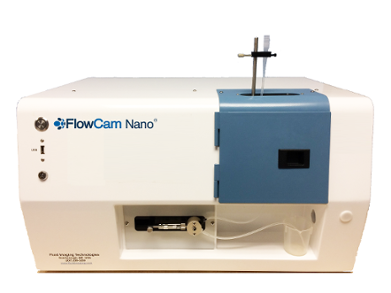
FlowCam, manufactured by Fluid Imaging Technologies and available in the UK from Meritics, has been used in the assessment of extraction methods for producing sporopollenin exine capsules, with possible drug delivery applications, from dandelion pollen grains.
The mature pollen grain of most pollen-producing plants has a double wall with a tough resistant outer cuticularised wall, called the exine or exospore, which is composed largely of sporopollenin, around the vegetative and generative cells that are surrounded by a delicate wall of cellulose. Sporopollenin is a highly cross-linked polymer, composed of carbon, hydrogen, and oxygen. It is extraordinarily stable and has been found chemically intact in 500 million-year-old rocks.
Pollen-based microcapsules derived from the exine have attracted a great deal of attention as microencapsulation vehicles for applications such as drug delivery. They are both physically and chemically stable, eco-friendly and have a uniform micro-scale size.
The cage-like sporopollenin exine capsules (SECs) have so far been extracted primarily from plant species that have pollen grains with uniform surface features and spherical geometries, using a variety of techniques. However, plants with more diverse pollen micro-architectures are also being explored, as they might suggest new applications. Dandelion pollen grains are of particular interest, being intricate, multi-spined and finely sculpted.
Dandelion SECs have now been extracted and assessed using a variety of techniques, including scanning electron microscopy (SEM), confocal laser scanning microscopy (CLSM), elemental CHN analysis, matrix-assisted laser desorption/ionization-time of flight (MALDI-TOF) mass spectrometry and dynamic image particle analysis (DIPA).
DIPA was of particular importance for determining the effectiveness of the different processing methods utilised by evaluating the amount of intact sporopollenin obtained. Researchers therefore chose the FlowCam, manufactured by Fluid Imaging Technologies, for their study. Critical parameters, including diameter, aspect ratio, circularity and edge gradient, were measured and FlowCam’s visual Spreadsheet software version 3.4.11 used to record data.
By using the FlowCam, alongside the other assessment methods, researchers found that a processing schedule involving acidolysis - 85% (v/v) phosphoric acid refluxed at 70 °C for 5 hours - yielded the optimal balance of protein removal and preservation of SEC microstructure.
The FlowCam range of products is available in the UK from Meritics at http://Meritics.com and you can also visit the global website at http://www.fluidimaging.com/






